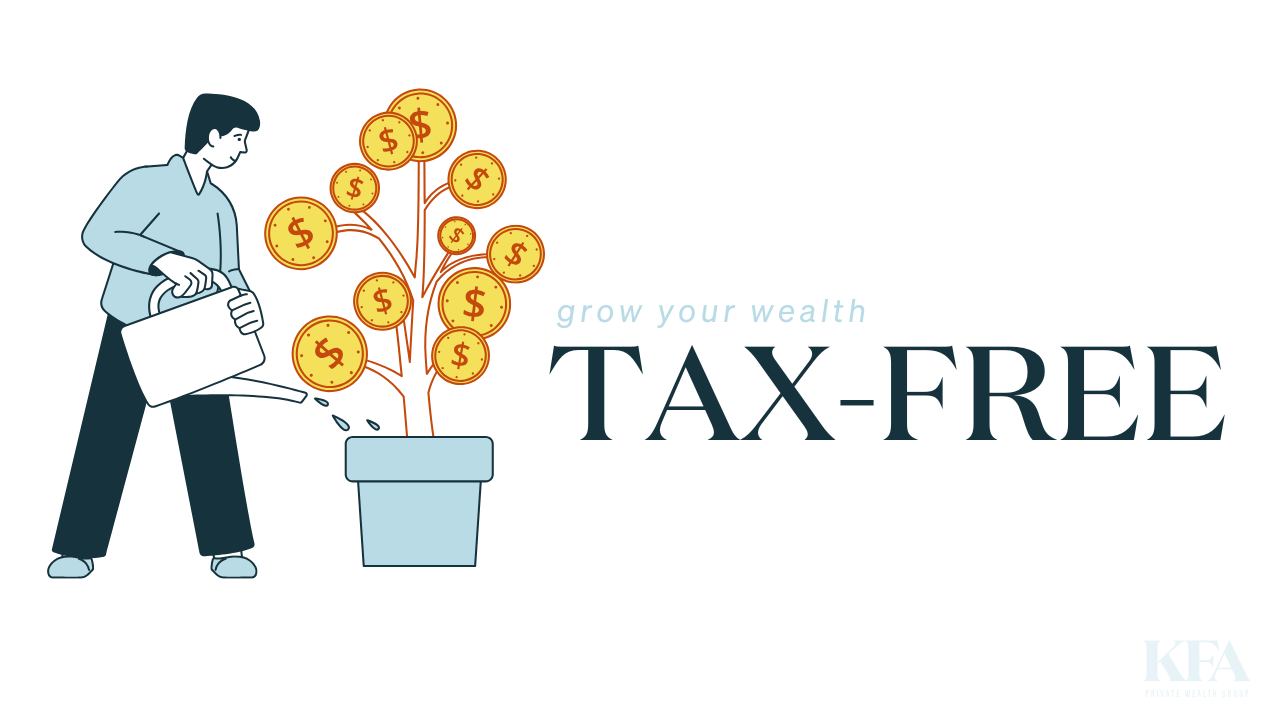Nobody likes paying taxes—that’s the truth. Taxes are often the biggest expense people face in their lifetime. But what if there was a way to keep more of your hard-earned money by minimizing the tax hit? There are strategies out there that can help you reduce your tax bill and build a more secure, prosperous future. Let’s dive in and explore some of the most effective investing strategies available today, and how to put them into action.
Roth IRAs: The Golden Ticket
Roth IRAs are the rock stars of the retirement world. You contribute after-tax dollars, and here’s the kicker: your money grows tax-deferred, and you can potentially withdraw it tax-free in retirement. For 2025, you can contribute up to $7,000, with an extra $1,000 if you’re 50 or older.
How to get started: Open a Roth IRA with a brokerage firm. You can set up automatic contributions from your bank account. Remember, there are income limits for Roth IRA eligibility, so check if you qualify. If your income is too high, consider a “backdoor Roth IRA” strategy.
401(k)s and 403(b)s: The Workplace Heroes
Don’t sleep on your employer-sponsored retirement plans. These let you contribute pre-tax dollars, reducing your taxable income now. Many employers even offer matching contributions—that’s free money, folks!
How to maximize: For 2025, the standard 401(k) and 403(b) contribution limit is $23,000. If you’re 50 or older, you can make an additional catch-up contribution of $7,500, bringing your total to $30,500. However, if you’re between 60 and 63 and have been with your current employer for at least 15 years, you may be eligible for a special catch-up provision in your 403(b). This allows you to contribute up to $3,000 more per year, with a lifetime limit of $15,000. When combined with the standard and age 50+ catch-up, this could potentially allow for a maximum contribution of $33,500 for eligible 60-63 year-olds in 2025.
Municipal Bonds: The Tax-Free Income Generators
Looking for a way to earn income without Uncle Sam taking a cut? Municipal bonds might be your answer. These government-issued securities often provide interest that’s free from federal taxes, and sometimes state and local taxes too.
How to invest: You can buy individual municipal bonds through a broker, but for most people, a municipal bond mutual fund or ETF is easier. Look for funds that focus specifically on your state to maximize state tax benefits. Be aware of the interest rate risk—when rates rise, bond prices typically fall. When considering municipal bonds, it’s crucial to understand the concept of tax-equivalent yield. For instance, if you’re in the highest federal tax bracket of 37%, a municipal bond yielding 4% would have a tax-equivalent yield of approximately 6.35% for a taxable bond. This means you’d need to find a taxable bond yielding 6.35% to match the after-tax return of the 4% tax-exempt municipal bond. This tax advantage makes municipal bonds particularly attractive for high-income investors seeking tax-efficient income.
Health Savings Accounts (HSAs): The Triple Threat
HSAs are the Swiss Army knives of tax-free investing. You get a tax deduction on contributions, tax-deferred growth, and tax-free withdrawals for qualified medical expenses.
How to leverage: First, make sure you’re eligible—you need a high-deductible health plan (HDHP). Open an HSA through your employer or with a provider like Fidelity or Lively. Contribute the maximum if you can ($3,850 for individuals, $7,750 for families in 2025, plus an extra $1,000 if you’re 55+). Consider investing your HSA funds for long-term growth instead of using them for current medical expenses if you can afford to.
Tax-Efficient ETFs: The Smart Investor’s Choice
Exchange-traded Funds (ETFs) are already pretty tax-efficient, but some are designed specifically with taxes in mind. These funds use strategies to minimize taxable distributions, helping you keep more of your returns.
How to implement: Look for ETFs labeled as “tax-efficient” or “tax-managed.” Popular providers include Vanguard, iShares, and Schwab. Consider placing these ETFs in taxable accounts, saving your tax-advantaged accounts for less tax-efficient investments.
Charitable Giving: Do Good, Save on Taxes
Here’s a win-win: donate appreciated stocks to charity. You’ll avoid capital gains taxes and gain a tax deduction.
How to execute: Instead of selling stocks and donating cash, transfer shares directly to the charity or a donor-advised fund. Many large charities are set up to accept stock donations. For smaller charities, consider using a donor-advised fund, which can simplify the process. Keep records of your donations for tax time.
The Bottom Line
Remember, it’s not about how much you make—it’s about how much you keep. By leveraging these tax-efficient investing strategies, you can build wealth more efficiently and keep more of your hard-earned money working for you. Start small if you need to—even implementing one of these strategies can make a difference over time.
But taxes and investing can be complex beasts. It’s always a good idea to chat with a financial advisor or tax pro to make sure you’re making the most of these strategies for your unique situation. At KFA, we offer tax planning and wealth management under one roof, ensuring a seamless approach to your financial health.
So go forth, invest wisely, and may your returns be plentiful and your tax bills small. Your future self will thank you for taking action today! If you want to get started or have any questions, don’t hesitate to reach out and book a free call with us.
The opinions expressed herein are those of KFA Private Wealth Group (“KFA”) and are subject to change without notice. KFA reserves the right to modify its current investment strategies and techniques based on changing market dynamics or client needs. This should not be considered investment advice or an offer to sell any product. Past performance is no guarantee of future results. This contains forecasts, estimates, beliefs and/or similar information (“forward looking information”). Forward looking information is subject to inherent uncertainties and qualifications and is based on numerous assumptions, in each case whether or not identified herein. It is provided for informational purposes only and should not be considered a recommendation to buy or sell securities or a guarantee of future results. KFA is an independent investment adviser registered under the Investment Advisers Act of 1940, as amended. Registration does not imply a certain level of skill or training. More information about KFA, including our investment strategies, fees and objectives can be found in our ADV Part 2, which is available upon request.




